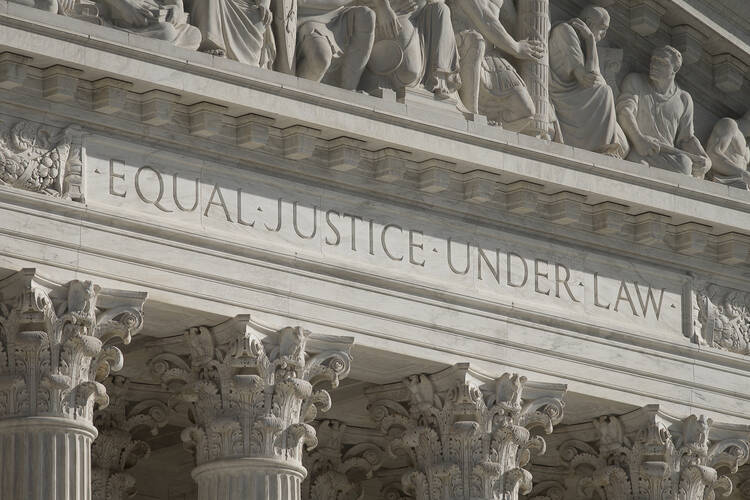How the U.S. Supreme Court rules on a case examining whether a mentally ill criminal defendant is entitled to defense by an independent mental health expert will have an immediate impact.
When the Arkansas Supreme Court stayed the executions of two of the eight men slated for April executions, Don Davis and Bruce Ward, it said it was awaiting guidance from the U.S. Supreme Court's decision in McWilliams v. Dunn, the case it heard April 24.
The U.S. Supreme Court is re-examining the 1986 death sentence of James McWilliams, who was convicted of raping and killing an Alabama convenience store clerk in 1984. Just days before his sentencing, a court-appointed psychologist prepared a report on his mental state.
During oral arguments, the court seemed evenly divided as it examined whether an Alabama death-row inmate should get a new sentencing hearing because he did not have a mental health expert during his sentencing trial more than 30 years ago. The practice of having a mental health expert on hand during sentencing has become more common in recent years.
The Supreme Court justices were asked to give further interpretation of the court's 1985 decision in Ake v. Oklahoma, which said defendants have the constitutional right to the appointment of a mental health professional at the state's expense to help prepare an insanity defense.
Atlanta lawyer Stephen Bright, representing McWilliams, said the court's Ake decision was meant to make sure that poor defendants have the opportunity to get the same kind of expert assistance that wealthy defendants and state prosecutors get.
"It at least gives the defense a shot, at least gives them one competent mental-health expert that they can talk to, understand what the issues are, present them as best they can," Bright said.
But some of the justices said the court ruling was purposely left unclear about how much independent expertise defendants needed.
Justice Elena Kagan said the ruling was very clear, pointing to what she called its "money sentence" in its words: "the state must assure the defendant access to a competent psychiatrist who will assist in evaluation, preparation and presentation of the defense." She also said the court-appointed psychologist for McWilliams did not meet the court's standard set the previous year in Ake v. Oklahoma.
Justice Stephen Breyer said a key issue is not whether the expert help for defendants is independent but if it truly provides the necessary help the defendants need.
The night after the court heard oral arguments in the McWilliams case, the state of Arkansas executed two death-row inmates that were part of its group of inmates being executed before the state's supply of one of the lethal injection drugs expired at the end of April. The double execution was the first to take place in the country since 2000 in Texas.
The Supreme Court denied a request for a stay of execution for inmate Marcel Williams, the second inmate executed on April 24. One of the eight inmates scheduled for execution was killed by lethal injection on April 21 and another is set to die on April 27.
The afternoon of April 24 Arkansas Coalition to Abolish the Death Penalty, along with support from Equal Justice USA, Amnesty International, American Civil Liberties Union and the Catholic Mobilizing Network, delivered 46,000 signatures to Arkansas Gov. Asa Hutchinson opposing the executions. The state group also said that at least 204,000 people had contacted the governor opposing the executions.










